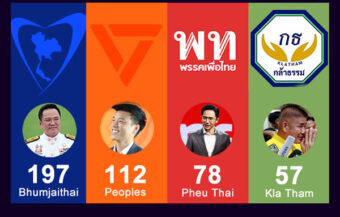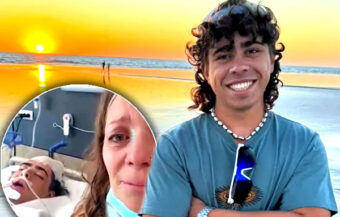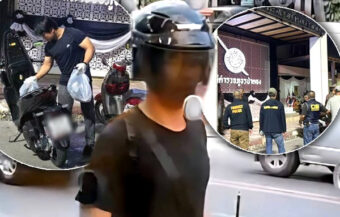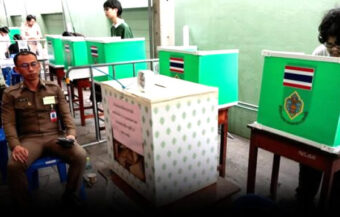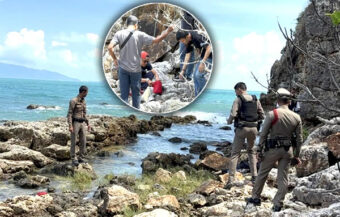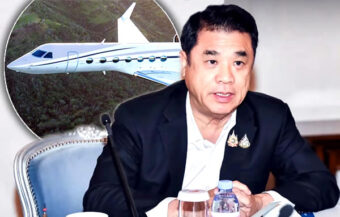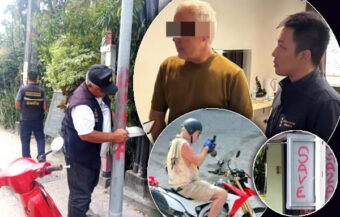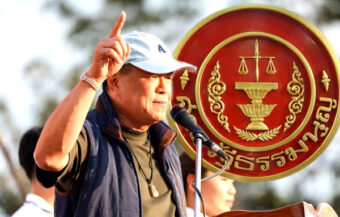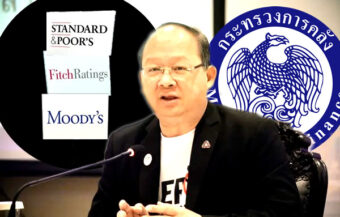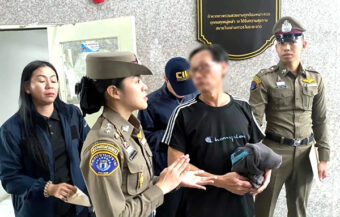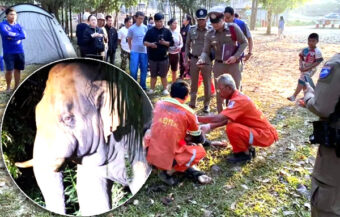Thailand lifts 2 pm–5 pm alcohol ban, giving relief to tourists and hospitality, but nightlife remains stunted as late-night drinking and early-hour openings are still prohibited, with customers only allowed to stay seated until 1 am without consuming alcohol.
The Alcoholic Beverage Control Board has fully lifted the 2 pm to 5 pm alcohol sales ban, but late-night drinking and early-hours openings remain prohibited. Nightlife and entertainment hubs in Bangkok, Pattaya, Phuket and throughout the kingdom are impacted. Customers may stay on premises until 1 am, but alcohol consumption is not allowed during that hour. Officials cited new data on road accidents and public health, prioritising safety over economic considerations.
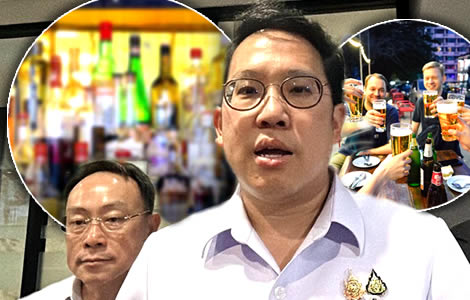
Thailand’s Alcoholic Beverage Control Board has decided to lift the nationwide ban on alcohol sales from 2:00 PM to 5:00 PM. The decision was confirmed on November 13, 2025, following a meeting of the committee chaired by Public Health Minister Pattana Promphat.
The measure will be implemented as a six-month trial, and its effects will be reviewed afterwards. According to officials, the trial does not require parliamentary approval. However, it does require a directive or confirmation from the Prime Minister’s Office. Implementation is expected within 15 days, by November 29.
The Alcoholic Beverage Control Board stated that the relaxation aims to address widespread concerns in the hospitality sector. Restaurants and hotels across Thailand reported revenue losses since the new law took effect on November 8. The ban itself is a 1972 measure that has long riled the industry.
Alcohol sales ban lifted to boost hospitality sector and stimulate festive season revenue across Thailand
However, the new law stiffened penalties for drinking after hours and targeted drinks or paying customers for the first time.
A ฿10,000 fine and a 5-minute drinking up stunned not only local drinkers but foreign tourists and the consular missions in Bangkok. The law has already negatively impacted the foreign tourism high season.
Consequently, officials say Thursday’s concession is intended to stimulate economic activity during the festive season. New Year and Songkran festivals, in particular, are expected to benefit from the increased operating hours.
Additionally, the board addressed after-hours drinking in restaurants. Customers will be allowed to remain on premises until 1:00 AM, although alcohol cannot be consumed during that hour.
The decision was based on accident statistics showing that the highest incidence of drunk-driving accidents occurs between 2:00 AM and 3:00 AM. Authorities emphasised that public safety and health considerations remain in place.
The 2:00 PM to 5:00 PM alcohol sales relaxation will be subject to a 15-day public hearing. Comments will be published in the Royal Gazette. Provincial alcoholic beverage control committees, led by governors, will monitor local compliance and results. Reports will then be submitted to the national committee for evaluation. The six-month assessment will review economic, social, and health impacts to decide whether to extend the trial.
Minister Pattana Promphat said the committee approved the measures after receiving a proposal from the Ministry of Tourism and Sports. He stated that the relaxation is intended to stimulate economic activity. The six-month trial will allow provincial committees to study and summarise data for national review. Officials emphasised that both positive and negative impacts will be documented.
After hours seating rules set until 1 am while alcohol sales relaxations face public hearing and monitoring
Regarding the extension of after-midnight drinking, the committee permitted customers to remain seated in restaurants for one hour past closing. Alcohol consumption is not allowed during this period.
Officials stated that the decision considers accident data, which indicates higher risks after midnight. The committee decided not to set an evaluation period for this measure.
Zoning restrictions for alcohol sales remain unchanged under the Alcoholic Beverage Control Act. The Ministry of Interior continues to review regulations affecting entertainment venues. Authorities stressed that provincial committees must monitor compliance closely. These measures aim to balance economic activity, social responsibility and public health.
Deputy Prime Minister Sophon Saram addressed the historical rationale behind the previous 2:00 PM to 5:00 PM ban. He explained that it was originally intended to prevent civil servants from drinking during the afternoon. He noted that civil servants no longer drink in the afternoon. Therefore, the government decided the prohibition should be abolished.
Mr. Sophon also discussed proposals to extend drinking hours for tourism. The committee considered allowing drinking until 4:00 AM. However, the Ministry of Public Health rejected the extension. Accident statistics show a significant number of incidents between 2:00 AM and 3:00 AM. Consequently, the committee limited after-midnight seating to one hour without alcohol consumption.
Panel confirms midnight cut-off and zoning rules remain as after-hours drinking extension rejected
Officials confirmed that existing laws under the Ministry of Interior will continue to regulate operating hours. Designated zones and distance requirements from schools will remain in effect. Provincial committees are tasked with ensuring consistent enforcement of these measures. Authorities stressed that public safety remains a priority.
The Ministry of Tourism and Sports has been coordinating with the Ministry of Public Health. Minister Atthakorn Sirilathayakorn stated that foreign tourists had expressed confusion about previous restrictions.
He confirmed that the ministry will communicate any changes once the revised measures are published. The Tourism Authority of Thailand will support these efforts. Embassies from several countries have already issued advisories to citizens regarding the alcohol ban.
Officials emphasised that the Prime Minister’s Office can issue the announcement within 15 days. Cabinet approval is not required. Once published in the Royal Gazette, the measures will take immediate effect. Authorities said the decision will facilitate economic activity, particularly in tourism and hospitality, without new legislation.
Prime Minister’s Office can issue revised alcohol rules within 15 days for immediate implementation
The trial period will allow provincial committees to evaluate impacts in each province. They will report findings to the national Alcoholic Beverage Control Committee. Officials confirmed that adjustments will be made if evidence indicates negative outcomes. The six-month period is designed to balance economic stimulus with public health and social considerations.
Minister Pattana Promphat said the committee reviewed all perspectives before finalising the measures. Officials considered concerns from both economic and health sectors. They also reviewed social factors and accident statistics. The committee emphasised that public safety remains a core priority while addressing economic needs.
Deputy Prime Minister Sophon Saram stated that the 2:00 PM to 5:00 PM ban will be officially removed. The Prime Minister’s Office can finalise the announcement after the 15-day public hearing. Provincial governors are responsible for implementation and monitoring. The committee will evaluate public comments and provincial reports to ensure the measures are effective.
Minister Atthakorn Sirilathayakorn noted that lifting the ban will reduce confusion among international tourists. He emphasised that communication to visitors is a priority. The Ministry of Tourism is working closely with embassies to clarify the new rules. Officials aim to ensure that tourists understand both alcohol sales hours and after-midnight seating policies.
Trial monitoring and communication with foreign tourists emphasised ensuring clarity on new rules
The after-midnight policy permits customers to remain seated until 1:00 AM. Alcohol consumption is prohibited during this period. Officials cited accident data as the basis for this one-hour extension. They noted that the highest risk of incidents occurs after midnight. Provincial committees are tasked with enforcing compliance and reporting results to national authorities.
Officials said zoning regulations and distance requirements from schools will remain in force. The Ministry of Interior continues to review relevant laws and regulations. Provincial committees will ensure that establishments follow operating hour rules. Authorities emphasised that enforcement will be consistent across all provinces.
Deputy Prime Minister Sophon stated that economic and tourism considerations were factored into the decision. Holiday periods, such as New Year and Songkran, were specifically considered. Authorities concluded that lifting the ban would support economic activity. At the same time, public health measures remain in place.
After midnight rules and zoning regulations maintained to protect public safety and support tourism
Provincial committees will monitor compliance and report their findings. The national committee will assess the effectiveness of the trial after six months. If necessary, measures will be adjusted or extended. Officials stressed that no change will compromise existing safety regulations.
Minister Pattana Promphat stated that the trial reflects a careful balance between economic growth, public safety and social responsibility. He noted that provincial committees are assigned to report both positive and negative outcomes. The six-month trial period will allow the government to make data-driven decisions on future policy.
The Ministry of Tourism will ensure that international visitors are informed of the changes. Minister Atthakorn Sirilathayakorn emphasised that communication with foreign embassies is ongoing. Authorities aim to clarify hours of alcohol sales and seating rules. This step is intended to reduce confusion and support tourism during peak periods.
Certainly, the decision on late-night drinking will dampen the nightlife and entertainment sector. Experience from the pandemic crisis shows this is a powerful factor both in attracting visitors and boosting spending.
Basically, the decision on Thursday will have negative economic repercussions. The present government, just like the government of that era, has opted to put public health policy first.
Officials stated that the trial period and public hearings will determine whether measures are effective. They said feedback from businesses, tourists, and local authorities will be taken into account. The 2:00 PM to 5:00 PM measure, along with after-midnight seating, will remain under review. The goal is to evaluate economic, health, and social impacts comprehensively.
Trial period and public hearings will determine effectiveness of alcohol policy and impact
Authorities emphasised that the 2:00 PM to 5:00 PM relaxation is part of a broader strategy to support tourism. Provincial committees are expected to document outcomes rigorously. Holiday periods are expected to benefit most from the extended daytime hours.
Nonetheless, the government on Friday stressed that public health remains a priority. In short, all measures are designed to minimise accident risks and road mortality rates. The after-midnight seating policy was only implemented to accommodate customer needs without increasing risks. Customers may remain until 1:00 AM, but cannot consume alcohol during that hour.
Provincial committees are tasked with strictly enforcing compliance and reporting results to the national committee.
Public hearings for both measures will last 15 days. Feedback will be published in the Royal Gazette. Implementation will follow immediately after publication. Authorities confirmed that provincial governors will oversee enforcement. Reports from provincial committees will be submitted to the national committee to guide future decisions.
Authorities outline public hearings and enforcement plans for alcohol sales and after midnight seating rules
Certainly, the Alcoholic Beverage Control Board has now lifted the nationwide 2:00 PM to 5:00 PM ban on alcohol sales. For late-night outlets, the news is catastrophic. Customers may remain seated until 1:00 AM without drinking alcohol. It is a concession unlikely to address the problems being encountered since November 8th.
In truth, Thailand’s nightlife and entertainment sector has just gone dark at the beginning of the country’s high season. The strict penalties also give this new law sharp teeth.
The Ministry of Tourism and foreign embassies will communicate updates on the situation to international visitors. The government will assess economic, health and social impacts after six months before deciding on any extension or modification.
PM promises clarity on alcohol law but business sector says it’s not enough after this latest debacle
Alcohol law debacle continues to decimate not only tourism industry but also wider grassroots economy
Alcohol law shoots foreign tourism in foot for High Season with stiff fines for visitors drinking up at watering holes
Therefore, the new law will sevreley continue to hamper nightlife in swing tourist hotspots after midnight. At this time, a return to former early morning hours opening times has been specifically ruled out by the committee that met on Thursday. This came despite it being proposed by the Ministry of Tourism and Sports.
Of course, this will now become the cause of concern for foreign tourism groups, as the situation will continue to turn the volume down on the nightlife and entertainment industry.
Lessons learned since the COVID-19 emergency tell us that the nightlife and entertainment sector in Thailand is a key driver of both tourist arrivals and income generated by the industry. However, from yesterday’s statement, it appears the Bhumjaithai-led government is adopting the public health-first policy taken back then at this time also. Public health and safety above economic impact.
Join the Thai News forum, follow Thai Examiner on Facebook here
Receive all our stories as they come out on Telegram here
Follow Thai Examiner here
Further reading:
Closure of Phuket bars and alcohol restrictions turn off prospective foreign tourists says survey
Blow for travellers: strict rules, no bars and entertainment venues allowed to open in Phuket


